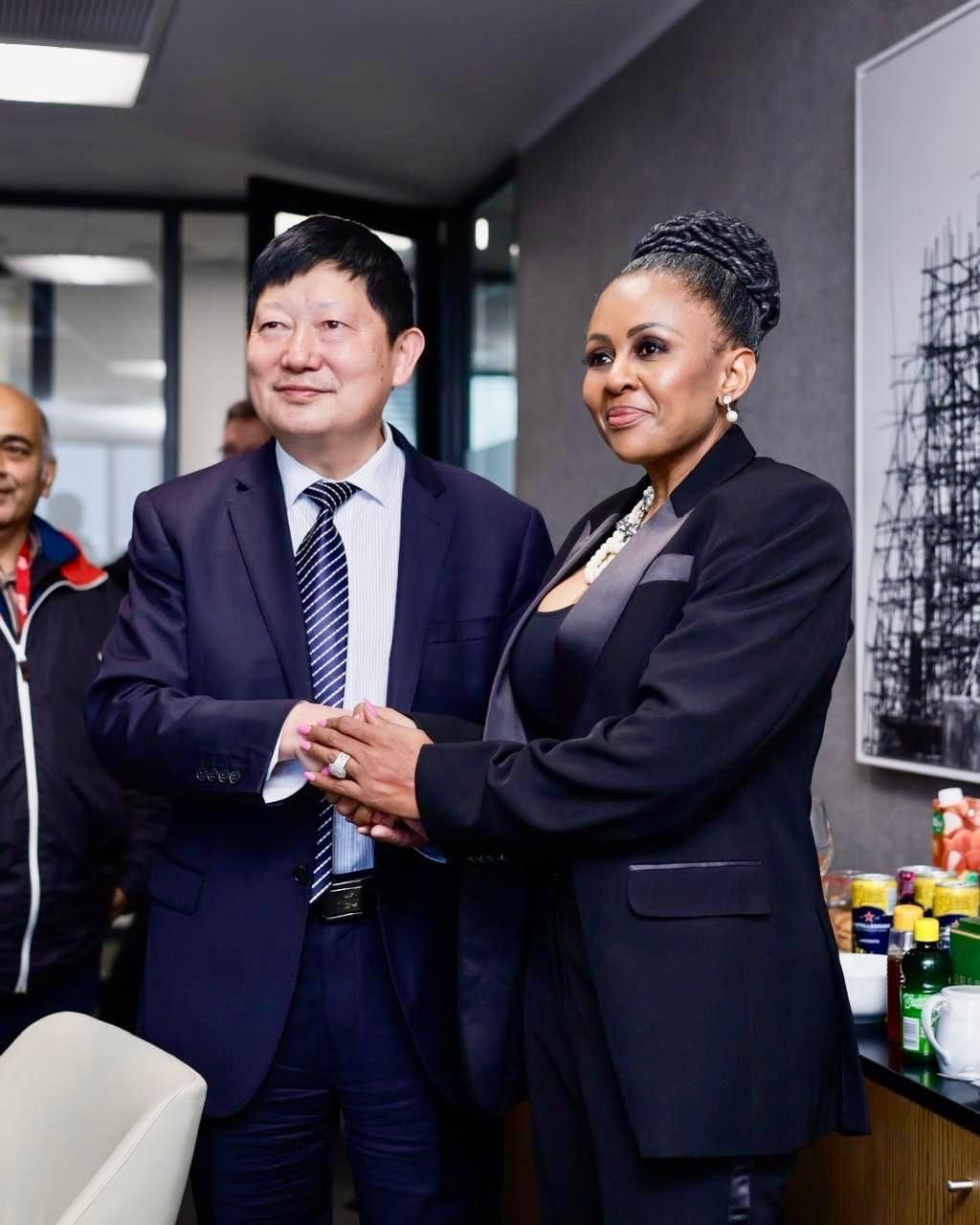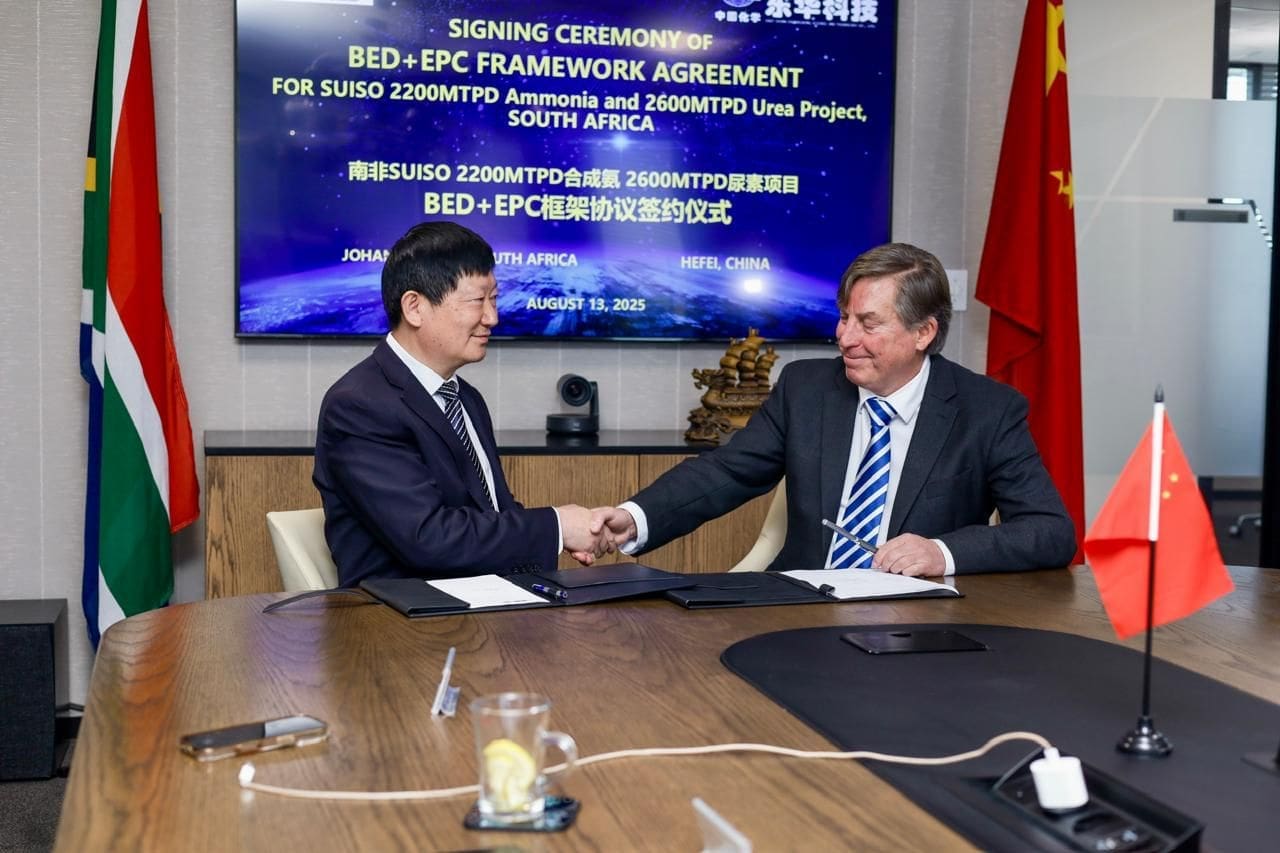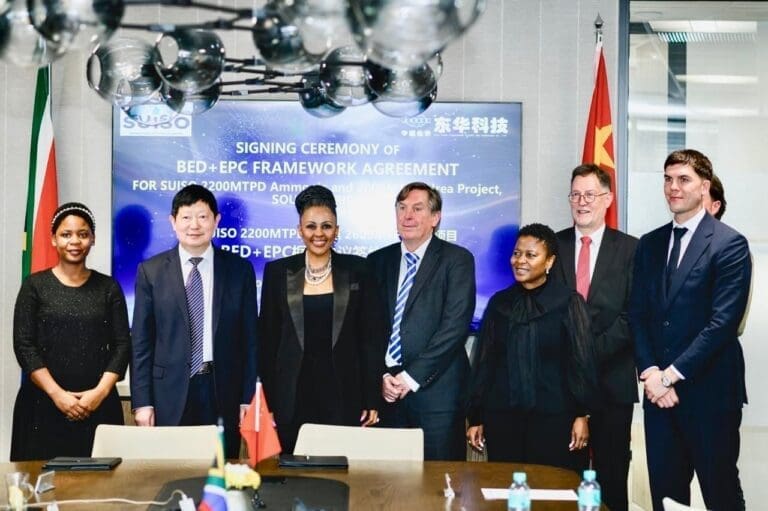Sustainable chemicals producer SUISO has signed a Basic Engineering Design (BEP) contract with Chinese engineering firm ECEC to construct the R31.5-billion ($1.6 billion) Hiryo coal-to-fertiliser industrial complex in Kriel, Mpumalanga.
The agreement was finalised in dual signing ceremonies in Johannesburg and Hefei on 13 August, following ECEC’s selection from a competitive bidding process.
ECEC (East China Engineering Science and Technology Co. Ltd), a subsidiary of China National Chemical Engineering Co., is a Shenzhen-listed firm with a global reputation, having completed over 2,200 projects in chemicals, power,and green energy.
“This exciting transaction saw five engineering firms bidding over two years, with ECEC emerging as the winner,” said Gerhard Potgieter, SUISO’s Director of Engineering and the technical mastermind behind the project’s process flow design.
SUISO founder Paul Erskine emphasized the broader impact of the deal: “This marks a national milestone in food security, industrial transformation, and sustainable development. We’re building a state-of-the-art facility that will be a flagship for agricultural resilience and energy innovation.”
ECEC chairman Li Lixin highlighted the China-South Africa partnership: “This project blends our nations’ resources with cutting-edge technology to deliver sustainable progress for generations.”
Located on 900 hectares in Kriel, Mpumalanga with access to 6-billion cubic metres of water, the Hiryo complex will require 176,000 engineering hours and 143 engineers to complete.
Once operational, it will produce:
-
958,000 tonnes of urea annually
-
737,000 tonnes of blue ammonia (with carbon capture)
-
515,000 tonnes of ammonium nitrate
-
27-million litres of high-octane methanol monthly
The facility is expected to reduce South Africa’s fertiliser imports by 50%, bolstering agricultural self-sufficiency.
Basetsana Kumalo, SUISO Chairperson, stressed the project’s socio-economic benefits: “This will create 4,000 construction jobs and 717 permanent roles, empowering communities and supporting women and youth in agriculture.”

The project also prioritises sustainability, with carbon capture, solar farms, and advanced fertiliser designs aimed at achieving decarbonisation and qualifying for carbon credits.
“Today, we sign not just a deal, but a promise, to deliver affordability, jobs, and agricultural independence,” Kumalo added.
Paul Erskine thanked key shareholders Lindiwe Leketi and Brad MacGibbon for their foundational support in reaching this milestone.
With detailed engineering now underway, the Hiryo complex is set to transform South Africa’s fertiliser industry while driving sustainable development.

